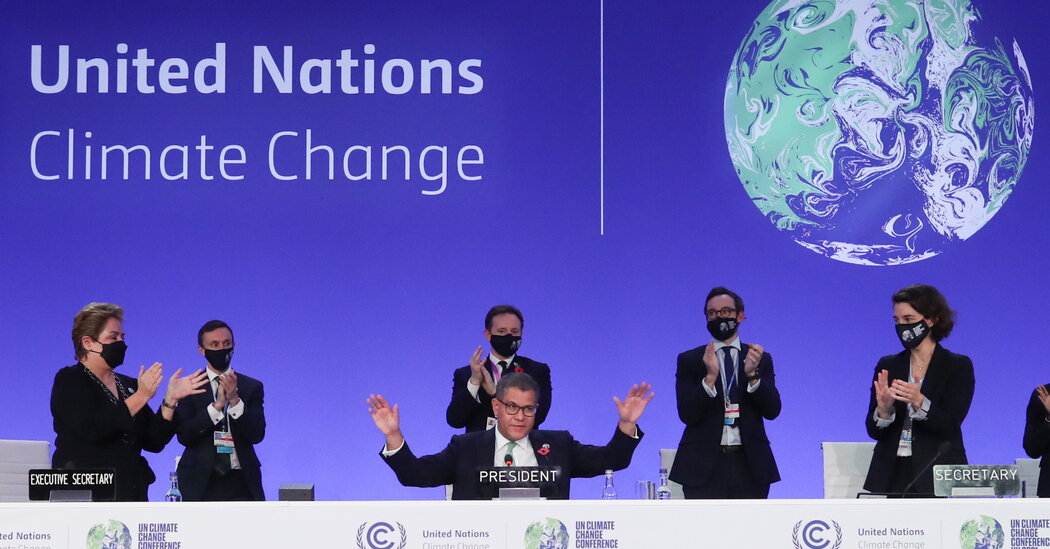

He pointed to an example of a trail that was built in a national park that was designed to involve local communities in the active management of the area. “Over 30 percent of our land and sea are preserved national parks, so it’s humanly impossible to supervise all these areas,” he said. “The community can benefit economically from these areas and will also be prone to stay and take care of it instead of only coming there for short-term income.”
5 Takeaways From the COP26 Climate Summit
1. Time for action is running out. The major agreement struck by diplomats established a clear consensus that all nations need to do much more, immediately, to prevent a catastrophic rise in global temperatures.
Visit Scotland, that country’s national tourism organization, which helped draft the declaration, has also taken a lead role. The organization has reduced its own carbon emission by 74 percent since 2008, and more than 850 local businesses have been given green tourism awards for their sustainability efforts.
Challenges persist
While the Glasgow Declaration has garnered great momentum and established common objectives, challenges lie ahead, especially when it comes to setting a global standard for reporting emissions figures for such a wide range of sectors within the industry, from tour operators to destinations, and airlines to cruise ships.
Signatories are expected to hold each other accountable and set common standards throughout international supply chains. Once action plans have been submitted within the next year, a reporting framework will be necessary. Anyone who fails to submit a road map within that time frame will be removed from the declaration.
“It is really important to bring value chains together,” said Catherine Dolton, the chief sustainability officer at IHG Hotels and Resorts. “Hotel developers, hotel owners, investors, franchisees, as well as the operators, are all impacting sustainability at different stages of the hotel life cycle.”
Visibly absent from the list of signatories were members of the cruise industry. The sector made a separate pledge to pursue carbon-neutral cruising by 2050 and reduce emissions 40 percent by 2030 in an annual environmental report, published last week by the industry trade group, Cruise Line International Association. While the report makes detailed commitments to reducing the cruise industry’s carbon footprint using new technology and alternative fuels, it does not address other environmental issues such as discharge of waste.
“Despite technical advances and some surveillance programs, cruising remains a major source of air, water (fresh and marine) and land pollution affecting fragile habitats, areas and species, and a potential source of physical and mental human health risks,” according to a recent report by the Marine Pollution Bulletin Journal.



